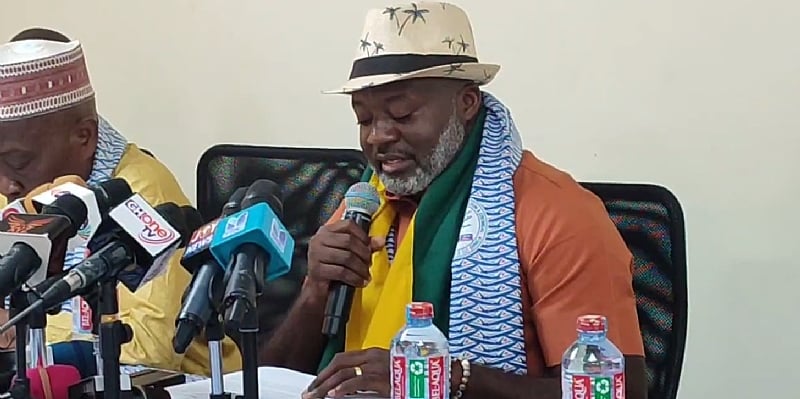Organised Labour’s recent decision to suspend a nationwide strike planned for October 10 regarding the alarming issue of illegal mining in Ghana, referred to as galamsey, has stirred considerable debate. Initially intended to mobilize public support and pressure the government into implementing more effective measures to combat the extensive environmental degradation caused by galamsey, the leadership’s announcement on October 9 raised eyebrows just a day before the strike was set to commence. The planned strike garnered widespread backing from diverse sectors of society, reflecting a collective urgency for actionable and stringent governmental responses to mitigate the socio-environmental crisis stemming from illegal mining. However, the abrupt cancellation has led to skepticism surrounding whether the leadership remains committed to holding the government accountable for its responsibilities toward environmental protection.
While many observers and supporters anticipated the strike as a pivotal means to galvanize governmental action, Organised Labour’s leadership faced significant backlash following its suspension of the strike. Critics have suggested that this decision is indicative of a capitulation to external pressures, possibly undermining the serious fight against the rampant menace of illegal mining. Supporters had viewed the strike as an essential instrument to amplify their calls for urgent action; therefore, the choice to withdraw has been interpreted by some as a missed opportunity to strengthen advocacy against galamsey and reinforce the demand for government intervention. Thus, the decision has highlighted the fragility of collective actions in the face of systemic governance challenges and organized resistance.
In defense of the suspension, Bernard Owusu, the Chairman of the Trades Union Congress (TUC), emphasized that Organised Labour made the decision with good intentions, positing that it should not be misconstrued as a capitulation or weakness. He asserted that the motives behind the suspension were strategic, aiming to allow the government the opportunity to respond responsibly to the pressing environmental challenges associated with illegal mining. Owusu expressed confidence that the government had made some provisions that warrant monitoring and evaluation, thus maintaining that the moment was not one of disappointment but rather a pragmatic step toward better government engagement on the issue. His remarks highlight the balancing act that organized labor must play between militant advocacy and collaborative engagement with authorities in the face of critical social concerns.
Owusu’s stance also signals a broader perspective on labor activism, illustrating the need for patience and continuous dialogue while advocating for systemic changes. He conveyed a belief that it is prudent for citizens to allow the government an opportunity to act on their requests and gauge its responsiveness. The leadership’s mindset underscores an approach in which organized labor positions itself as a constructive partner in the governance process, albeit one that remains vigilant and ready to mobilize again if the governmental response falls short. This strategy underscores a potential shift in labor movements from being purely adversarial to incorporating elements of collaboration in pursuit of developmental goals, which can be especially critical in addressing complex societal issues such as galamsey.
However, the overarching tensions surrounding the response to illegal mining persist, raising vital questions about effectiveness and accountability at multiple governance levels. The government’s prior inaction on illegal mining has provided fertile ground for public skepticism, leading many to question whether the suspension of the strike truly reflects a genuine commitment to urgently address these significant issues. The history of neglect surrounding the environmental and social ramifications of galamsey continues to loom over the dialogues. While some citizens and advocacy groups contemplate the suspension as a positive reflection of potential governmental engagement, others remain cautious, attributing the decision to insufficient political will to combat illegal mining effectively.
As Ghana grapples with the complexities associated with galamsey, Organised Labour’s strategies will likely continue to generate various responses across the societal spectrum. The dynamics illustrate an ongoing struggle wherein labor organizations find themselves at a crossroads between advocacy, strategic interaction, and the need for substantive change in governance practices. The forthcoming actions and commitments from the government will ultimately determine the trajectory of public trust and activism concerning the galamsey crisis. The current episode serves as a critical reminder that while organized labor’s approach may evolve, the underlying issues of environmental degradation and social responsibility remain urgent, necessitating prolonged vigilance, solidarity, and meaningful channels for advocacy.














